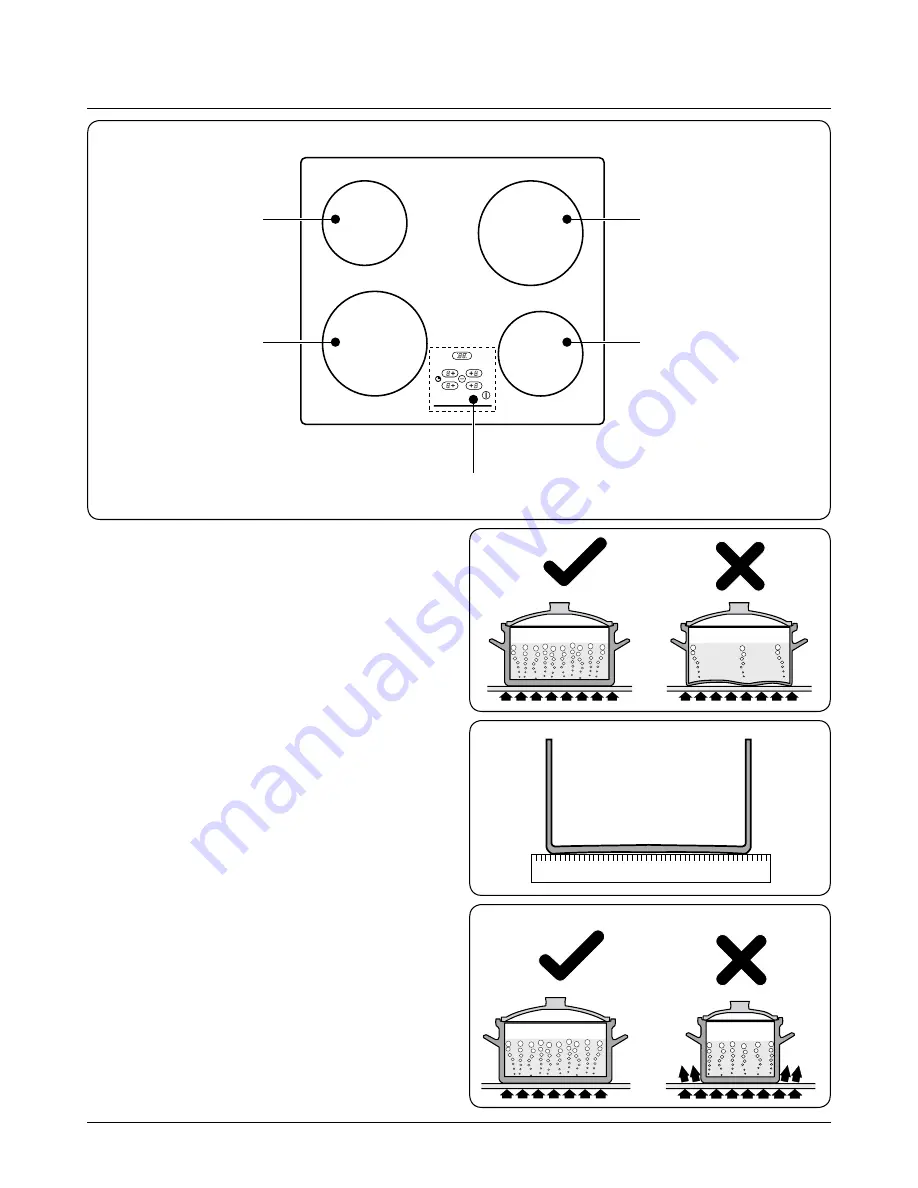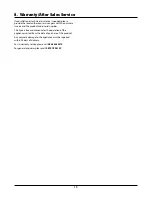
3
2. Hob Overview
The ceramic hob comprises of four cooking zones containing
heating elements with different ratings and diameters
(Fig.2-1), each with a residual heat indicator. Each zone is
controlled via the touch sensitive controls with an audible
signal when operated.
The Hob
Use only pans that are suitable for ceramic hobs. We
recommend stainless steel and enamelled steel pans as pots
and pans with copper or aluminium bases leave traces on the
hob that are difficult to remove. Glass-ceramic cookware is
not suitable because of its poor conductivity.
The kind of pan
you use and the quantity of food affects the setting required.
Higher settings are required for larger quantities of food
.
Pots and pans should have thick, smooth, flat bottoms
(Fig.2-2). This ensures the maximum heat transfer from the
hob to the pan, making cooking quick and energy efficient.
Never use a round-bottomed wok, even with a stand.
The very best pans have bases that are very slightly curved
up when cold (Fig.2-3). If you hold a ruler across the bottom
you will see a small gap in the middle. When they heat up the
metal expands and lies flat on the cooking surface.
Make sure that the base of the pan is clean and dry to prevent
any residue burning onto the hob panel. This also helps
prevent scratches and deposits.
Always use pans that are the same size as (or slightly larger
than) the areas marked on the hob top (Fig.2-4). Using
smaller pans wastes heat, and any spillage will be burnt on.
Using a lid will help the contents boil more quickly.
ArtNo.315-0002 RC60 ceramic hob
ELECTRONIC CONTROL
��������������������������
��������������������������
��������������������������
��������������������������
�����������������������������
ArtNo.312-0004 Correct pans ceramic
ArtNo.312-0005 Curved
bottomed pan ceramic
Fig.2-1
Fig.2-2
Fig.2-3
ArtNo.312-0006 Correct pan sizes
Fig.2-4
DocNo.022-0001 - Overview - RC60 ceramic






































